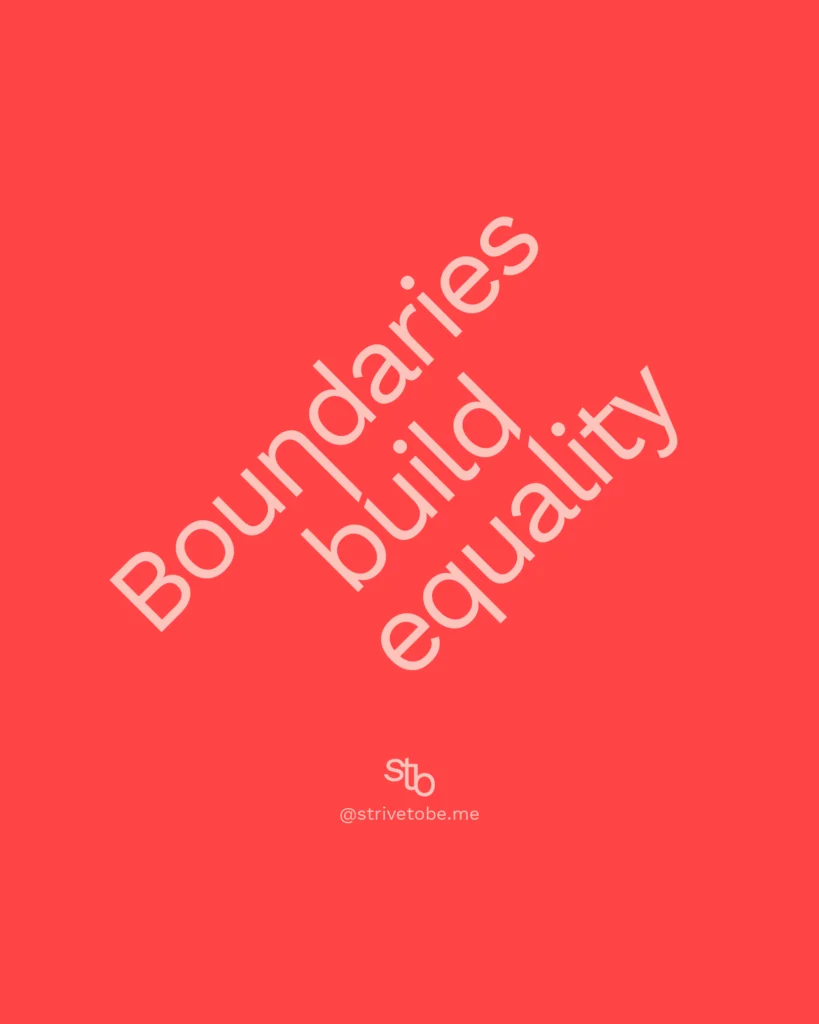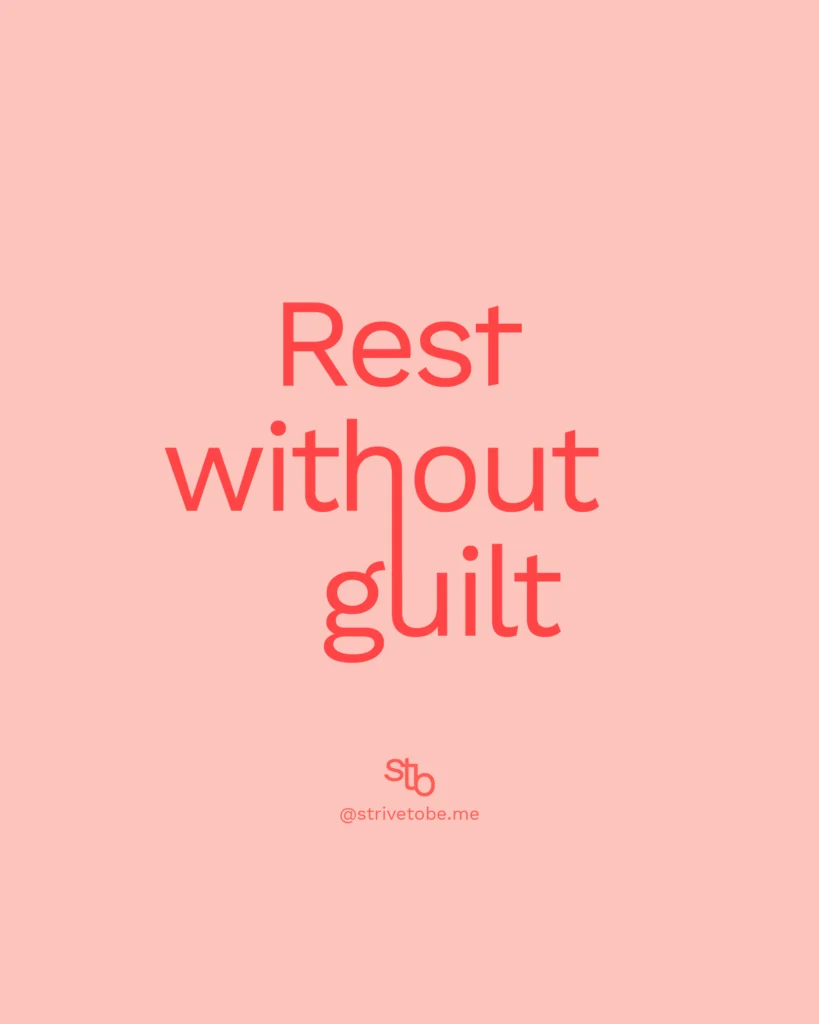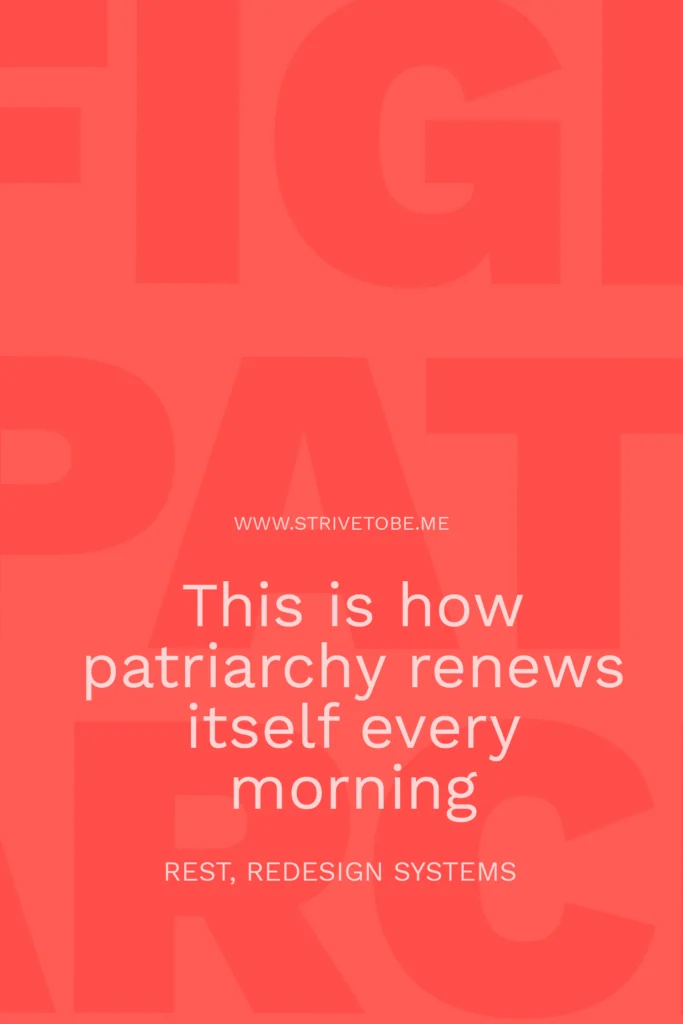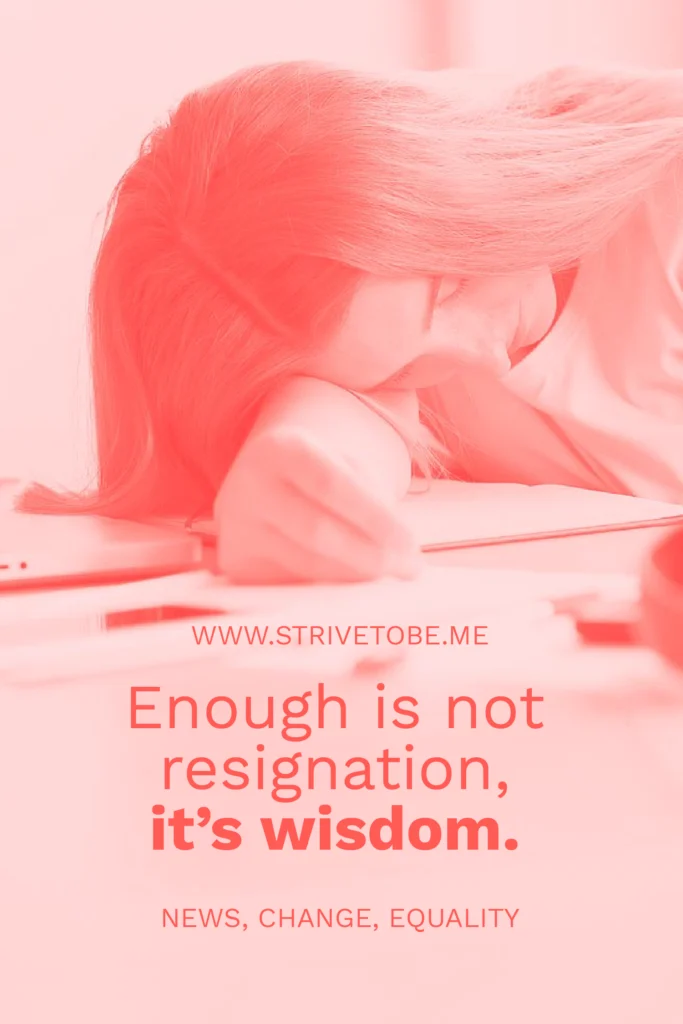Female Exhaustion: How Patriarchy Profits from Your Fatigue

And why reclaiming rest is one of the most powerful feminist acts
There’s a quiet economy that powers the world.
It doesn’t appear in budgets, policies, or GDP reports — but without it, everything collapses.
It’s the invisible energy women spend holding life together: anticipating, caring, soothing, remembering, repairing.
This is the unpaid labor of womanhood, the energy extraction that patriarchy depends on.
And the more tired women are, the more stable the system becomes.
The Architecture of Exhaustion
Patriarchy, at its core, is a design for control; not only of women’s rights or choices, but of their energy.
This keeps women occupied: always giving, improving, perfecting, managing.
It calls this “love.” It calls it “dedication.”
But beneath the surface, it’s a strategy of depletion.
Because exhaustion is compliance.
A woman too tired to question the system will settle for surviving it.
This is how patriarchy renews itself every morning — in the unpaid hours women spend sustaining families, communities, and companies, all while apologizing for being tired.
How the System Turns Energy Into Control
Exhaustion is not accidental. It’s engineered. When you look at patriarchy and female exhaustion together it all makes sense.
It’s built into how girls are raised, how workplaces function, how relationships are structured, and how culture defines “a good woman.”
1. In the family
A woman’s worth is tied to self-sacrifice. She’s praised for giving endlessly: her time, her body, her emotions all while her own needs are labeled selfish or secondary.
The “good mother,” “supportive partner,” and “dutiful daughter” are all roles that sanctify exhaustion as virtue.
2. In the workplace
Women are often the emotional infrastructure, the ones who remember birthdays, check in, mediate conflicts, plan celebrations, and soothe egos.
These are critical tasks, but they’re invisible in performance reviews and paychecks.
Corporate patriarchy thrives on this imbalance: women doing more relational work for less recognition.
3. In society
Women are told they can be anything, as long as they do everything.
Career, family, fitness, friendship, appearance — every domain has become a performance.
The result is not freedom, but fatigue.
And yet, exhaustion has been aestheticized. We celebrate “strong women” who keep going, not the ones wise enough to stop.
The Psychology of Depletion
Exhaustion doesn’t just drain the body, it numbs the mind.
When the brain is overloaded, it switches from curiosity to survival mode. You stop asking why and start asking how: How do I get through this day? How do I fix this next thing? How do I stay afloat?
That constant vigilance — the emotional project management of life — keeps women from stepping back to question the system itself.
It’s not that women lack power; it’s that they’re too overworked to use it strategically.
Patriarchy doesn’t need to silence women. It only needs to keep them busy.
Why Rest Is Revolutionary
Rest is not a reward. It’s resistance.
Every time a woman rests, she interrupts a centuries-old pattern of self-erasure.
Because rest reclaims the one thing patriarchy can’t function without: women’s energy.
- A well-rested woman becomes dangerous.
- She sees clearly what no longer deserves her effort.
- She stops performing gratitude for the bare minimum.
- She starts asking different questions — the kind that redesign systems instead of maintaining them.
That’s why cultures built on female exhaustion treat rest with suspicion. A woman who sleeps in, sets boundaries, or takes time off is labeled lazy or indulgent. She’s violating the unspoken rule: you exist to serve.
But the truth is simple:
When women rest, the world doesn’t fall apart.
It just stops running on exploitation for a moment — and that’s what makes rest radical.
The Capitalist-Patriarchal Loop
Patriarchy’s cleverest trick is how it merges with capitalism.
It depletes women, then sells them things to fix the depletion — beauty products, productivity hacks, self-help routines, yoga retreats, “clean girl” aesthetics.
It tells them exhaustion is a personal failure — and that the cure is to buy, work out, organize, optimize, glow.
This is the female fatigue economy:
A cycle of extraction disguised as empowerment.
Women work to afford relief from the very system that made them tired.
Real liberation doesn’t come from better wellness tools.
It comes from understanding that you were never meant to sustain this level of output in the first place. Patriarchy designed female exhaustion as one of their pillars of success.
The Power of Enough
There’s a word that terrifies patriarchal culture more than “feminism.”
It’s “enough.”
When a woman decides she’s done overperforming, overexplaining, and overextending — she becomes ungovernable.
Enough is not resignation; it’s wisdom.
It’s the clarity that says: I am not required to burn for others to stay warm.
Imagine what happens when thousands of women reach that moment — collectively, calmly, without apology. The system doesn’t collapse through rebellion; it expires through disinterest.
Patriarchy cannot thrive when women stop feeding it their exhaustion.


How to Begin the Unplugging
You don’t need to quit your job or abandon your responsibilities. You only need to reclaim your energy — one decision at a time.
- Pause before saying yes.
Every yes is an energy contract. Ask: does this honour me, or does it drain me? - Delegate or delete small things.
Perfection is patriarchy in disguise. Good enough is revolutionary. - Stop apologizing for rest.
Replace “I’m sorry, I’m tired” with “I’m recharging.” - Create micro-moments of silence.
In a world addicted to noise, quiet is how you meet yourself again.
Each small act is a line of code rewritten in the operating system of daily life.
From Burnout to Blueprint
When women reclaim their energy, they reclaim imagination — the ability to see new possibilities beyond endurance.
A rested woman writes better systems.
She doesn’t dream of surviving — she designs for thriving.
The revolution isn’t female. It’s well-rested.
Because when women stop running on empty, the entire structure of power must evolve — not through confrontation, but through obsolescence.
A rested woman is a mirror the system can’t look into — because she reveals how unnecessary its demands always were.
The New Definition of Strength
Strength isn’t endurance anymore.
It’s discernment — knowing where your energy belongs, and refusing to give it away carelessly.
Patriarchy uses female exhaustion as it’s secret weapon to make sure the world stays the same. But a strong woman doesn’t hold the world together alone. She teaches others to carry it with her.
When exhaustion is no longer glorified, love becomes mutual. Work becomes fair. Society becomes humane.
This is the quiet revolution patriarchy never anticipated — not a war cry, but an exhale.
TODO for you
The next time you feel the urge to push through, ask yourself:
Who benefits from my exhaustion?
If the answer isn’t “me,” you’ve found your boundary — and your beginning.


You might also like:
10 Female Actions to Fight Patriarchy
How Patriarchy still Shapes Women & How we Can Redesign It
The Work You Don’t See: The Invisible Economy of Women’s Work





